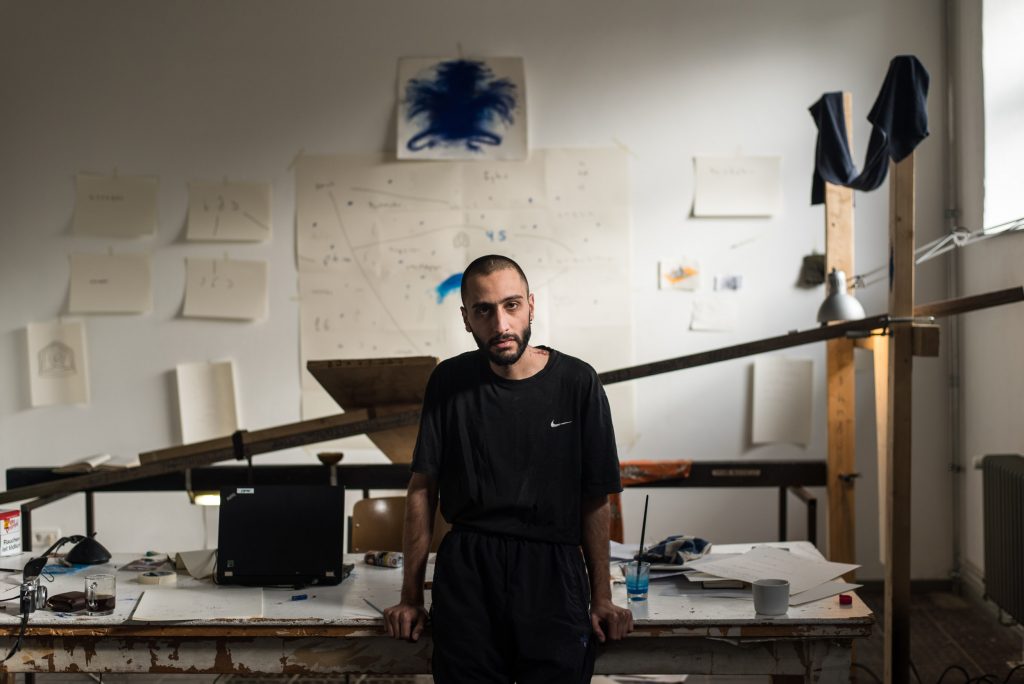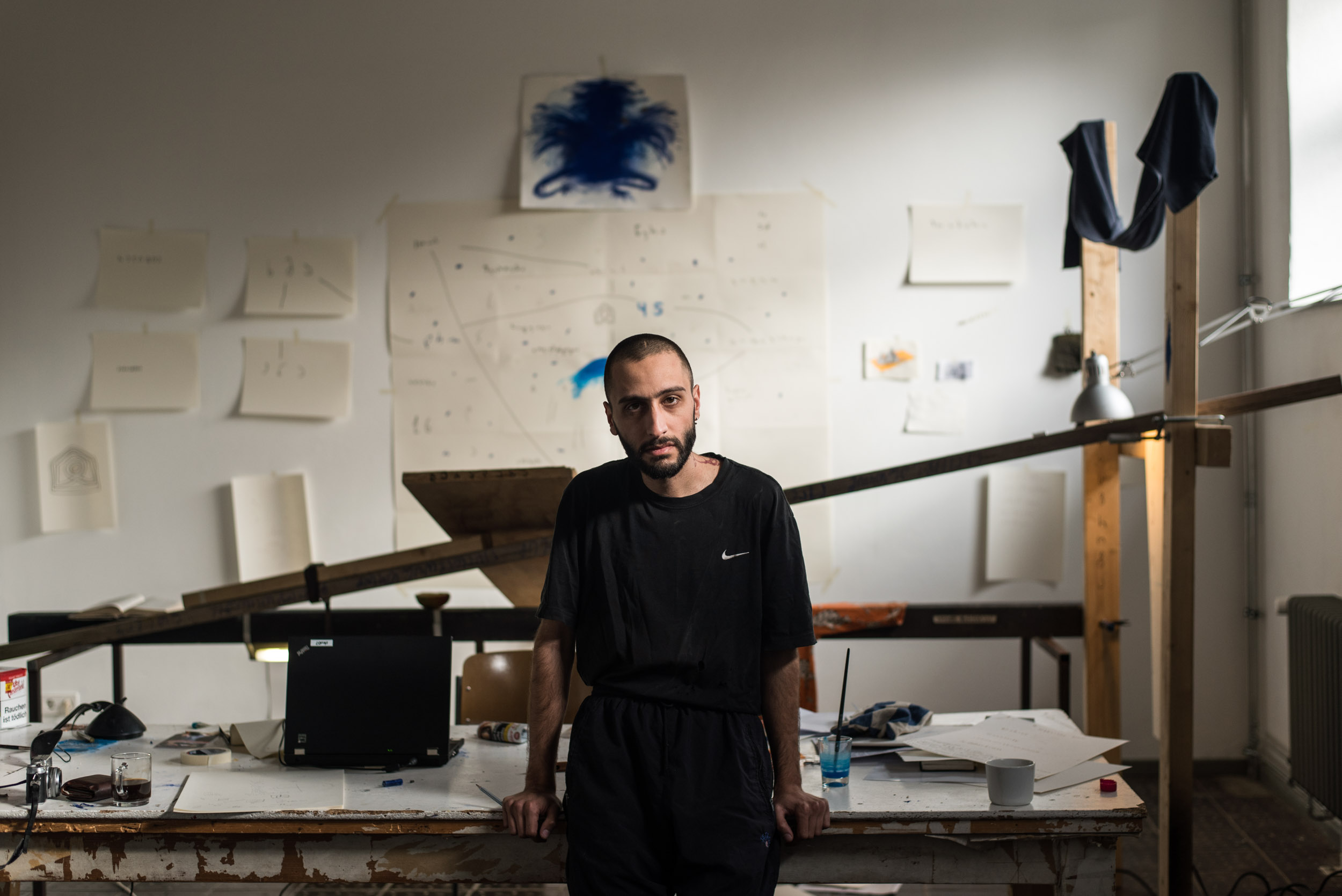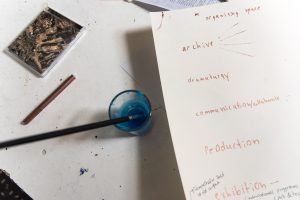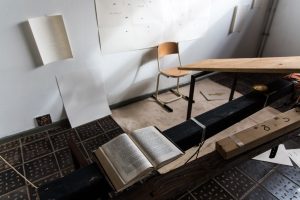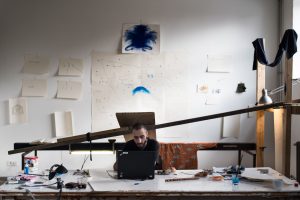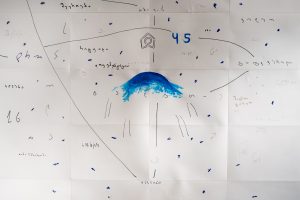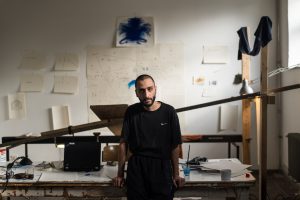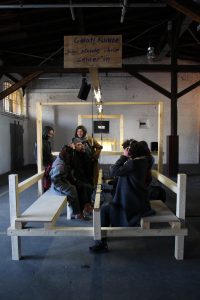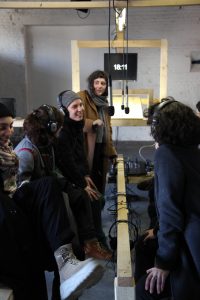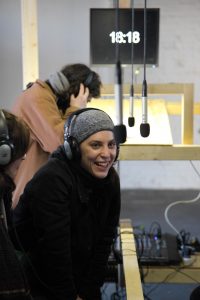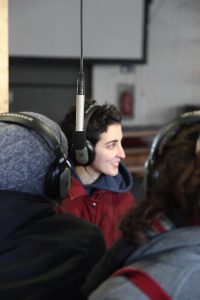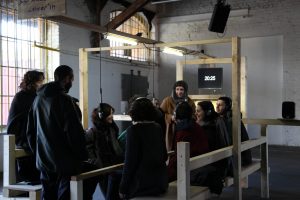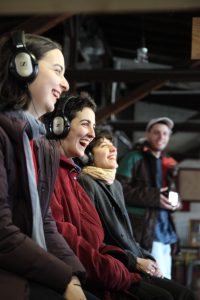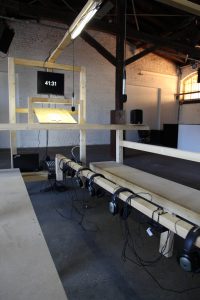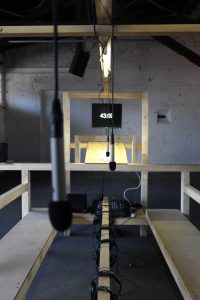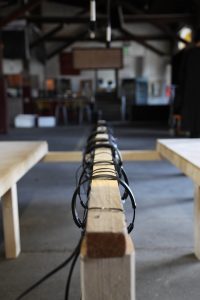GELATI SCHOOL
Emerging artist: Zura Tsofurashvili (Georgia)
Residency place: ZK/U Berlin (Berlin, Germany)
Practice: Education, installation
Curated by: Lotta Schafer
MagiC Carpets platform is based on the sharing of experience and knowledge especially in times of social uncertainty and need for inclusiveness of cultural offer, growing nationalism, and populism. It also shows how culture can contribute to intercultural dialogue, learn from each other’s experiences and offer new insights and practical guides to the public. Different questions help those involved to explore the complexity and multiple perspectives on the notion of solidarity.
How can solidary art or artistic solidarity work?
How can social togetherness be noticeable?
How can artists work not only with and about other social groups but rather build bridges towards them?
One artistic practice or way of life that seemed really relevant to the topic is the one of Zura Tsofurashvili from CCA Tblisi and his Parallel Class. The latter was founded by him and other artists to prepare 9th graders for the real-life which is not done by the Georgian or most school curricula. The artists teach the youngsters how to organize events, find spaces to use or make a publication.
Zura Tsofurashvili was born in Tbilisi, Georgia in 1992. He studied at Tbilisi Theological Academy from 2011 to 2015. He then continued his studies in the Center of Contemporary Art – Tbilisi. From 2017, together with other artists, he created an artistic educational platform “Parallel Class”, based in public school. From 2018 he is a member of the “InChina” collective.
His actions are directed towards the uttermost analysis and combination of possibilities and resources in order to create novel, autopoietic organisms within a given environment. The type and amount of instruments needed take shape during the process, multidisciplinary experience expresses itself in a rather intuition- and emotion-oriented approach. Concretization of the working space depends on the respective requirements, possibilities and potential.
His main areas of interests are currently ideational, virtual or material spaces, serving as platforms for coming together, and for the accumulation and exchange of knowledge. The essential question or area that he is working on is the activation, development and usage of secondary education and school in general.
In order to complement the Berlin struggles with an international perspective, ZK/U invited Zura to address the issue of solidarity. His informal educational practices with young people show how self-evident it can be for artists to live and pass on solidarity.
To support others out of your own grievances and empowering them to have a choice to do the same is a pretty ideal form of solidarity. Zura attended the Informal Master’s Program at CCA Tblisi and it seemed to him the natural thing to do especially because the notion of solidarity was rather foreign to him. It is a notion developed in Europe around 150 years ago in the wake of increasing industrialization and is understood differently in specific nations and contexts.
Zura, on the other hand, researched even older notions of knowledge sharing at the Gelati Monastery near Kutaisi, founded by King David IV in 1106. It’s a masterpiece of the Georgian Golden Age and was a main cultural and intellectual center for different disciplines. Based on the exchanges and freedom of thought and humanistic ideals, Zura created his own Gelati School.
The school encompasses one 45 minute-lesson, where learning is based upon listening. The given time and space serve as an opportunity to be utilized according to content and format by each student individually. At the lesson only one thing is obvious for the students – for 45 minutes, every voice will be recorded, preserved, and published equally in a digital recording/album/CD format. The whole process is transparent to all participants. Each participant uses ear-phones and a microphone. In this context, voice, language, and text are the main weapons; Only increasing their impact on the listener. The materialization, presentation, recording of voice within a certain space renders its function endless and timeless. The eclectic topics of the participants and the big amount of laughing show that a school lesson without a teacher is a lesson nevertheless.
